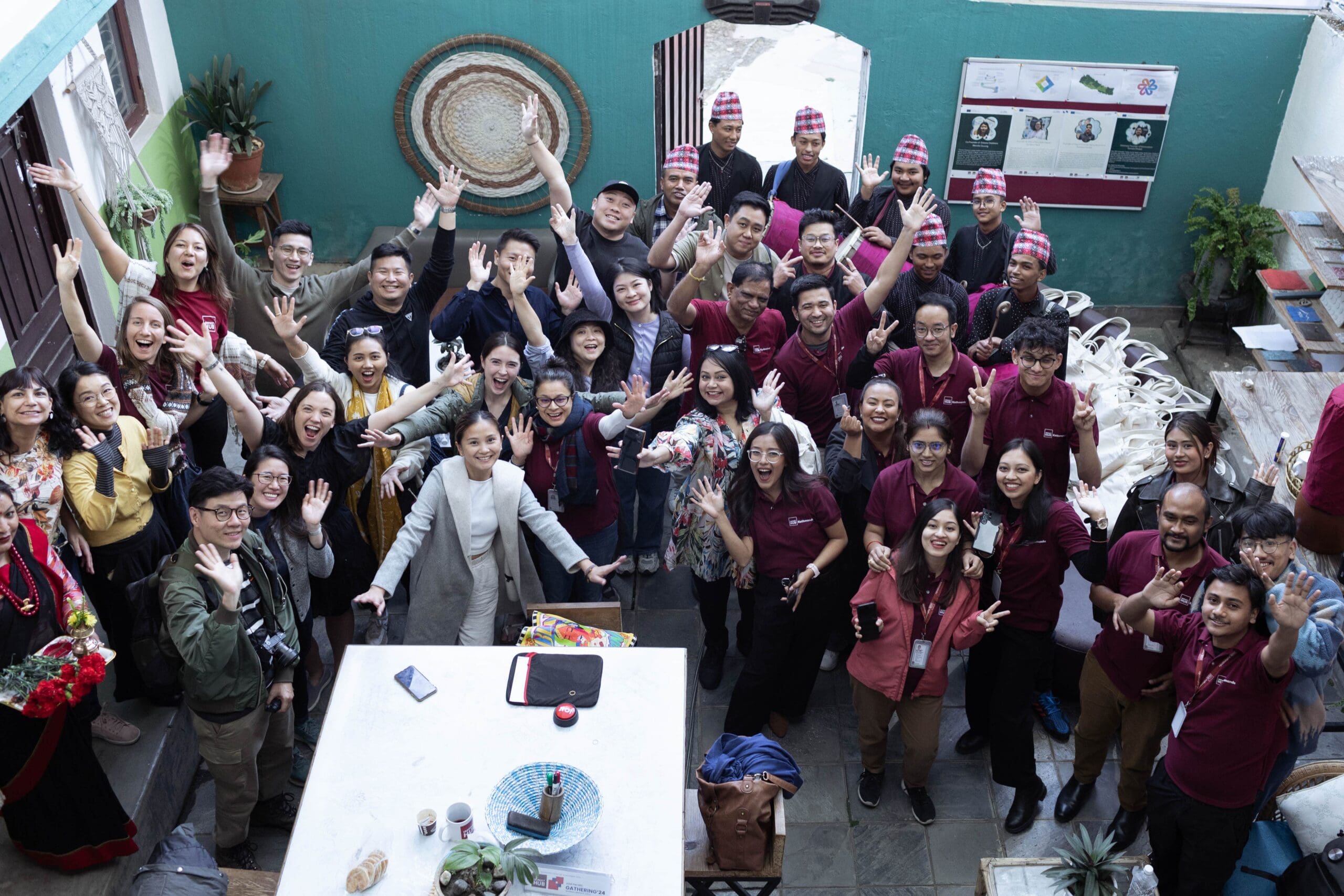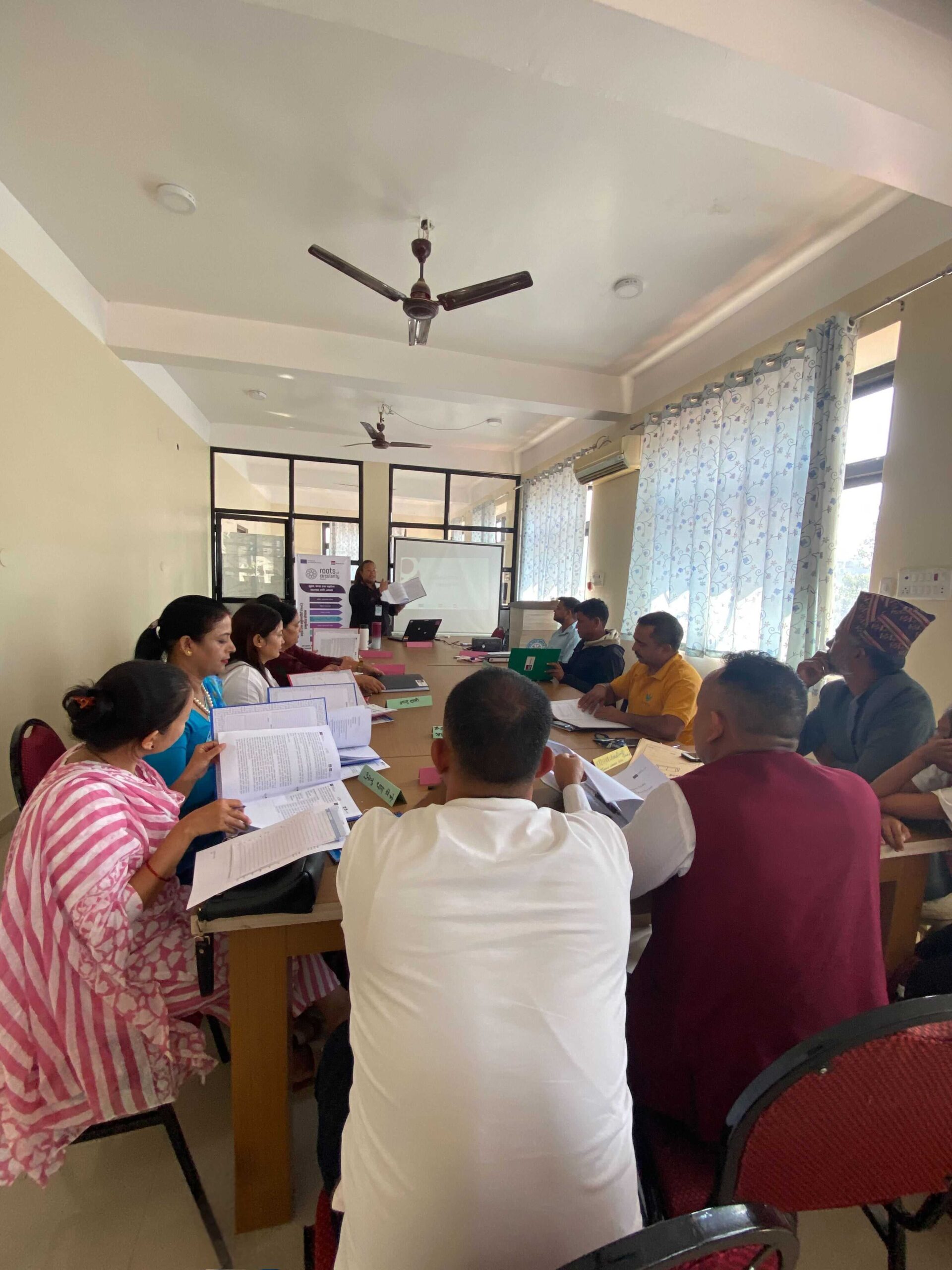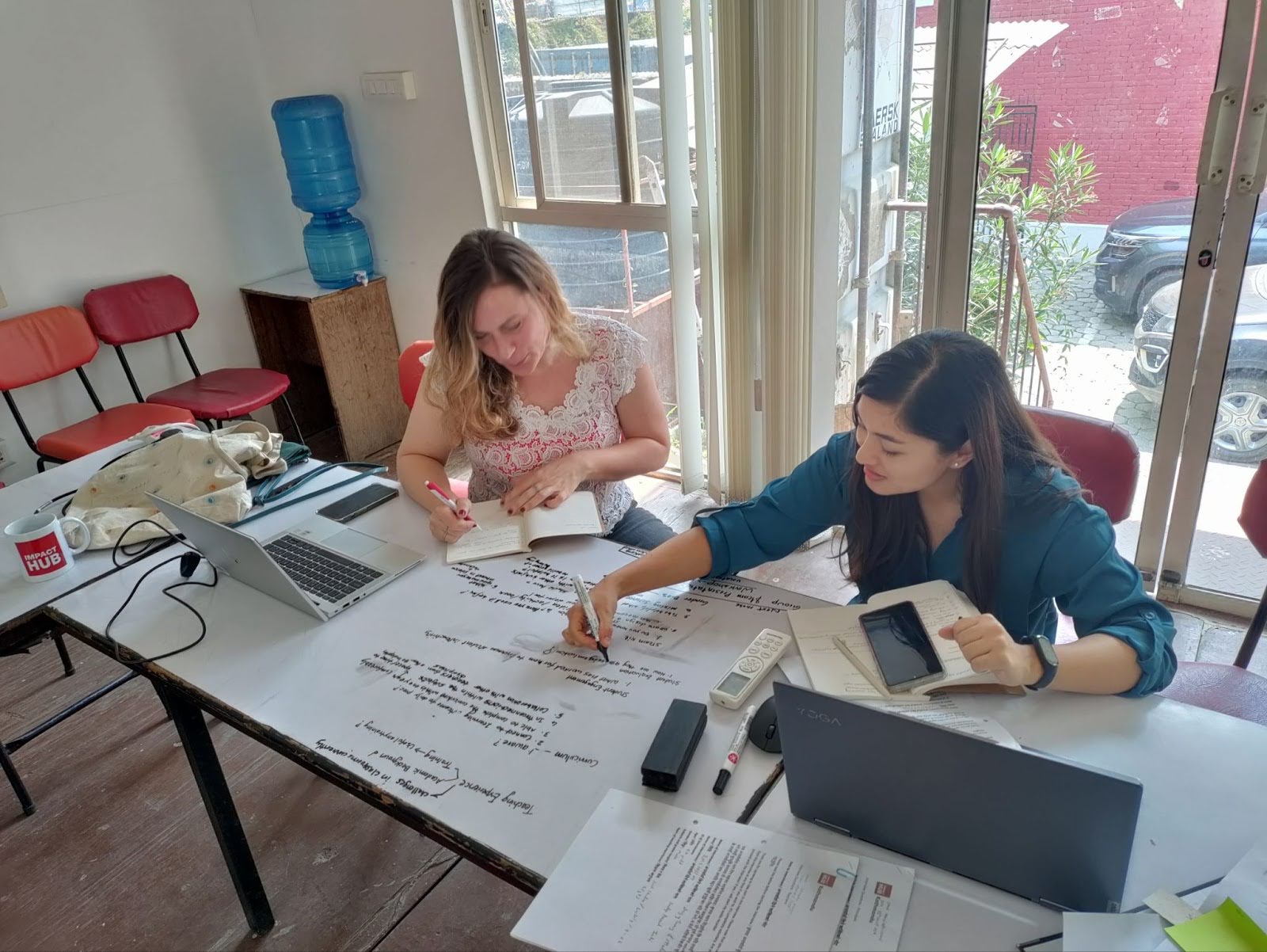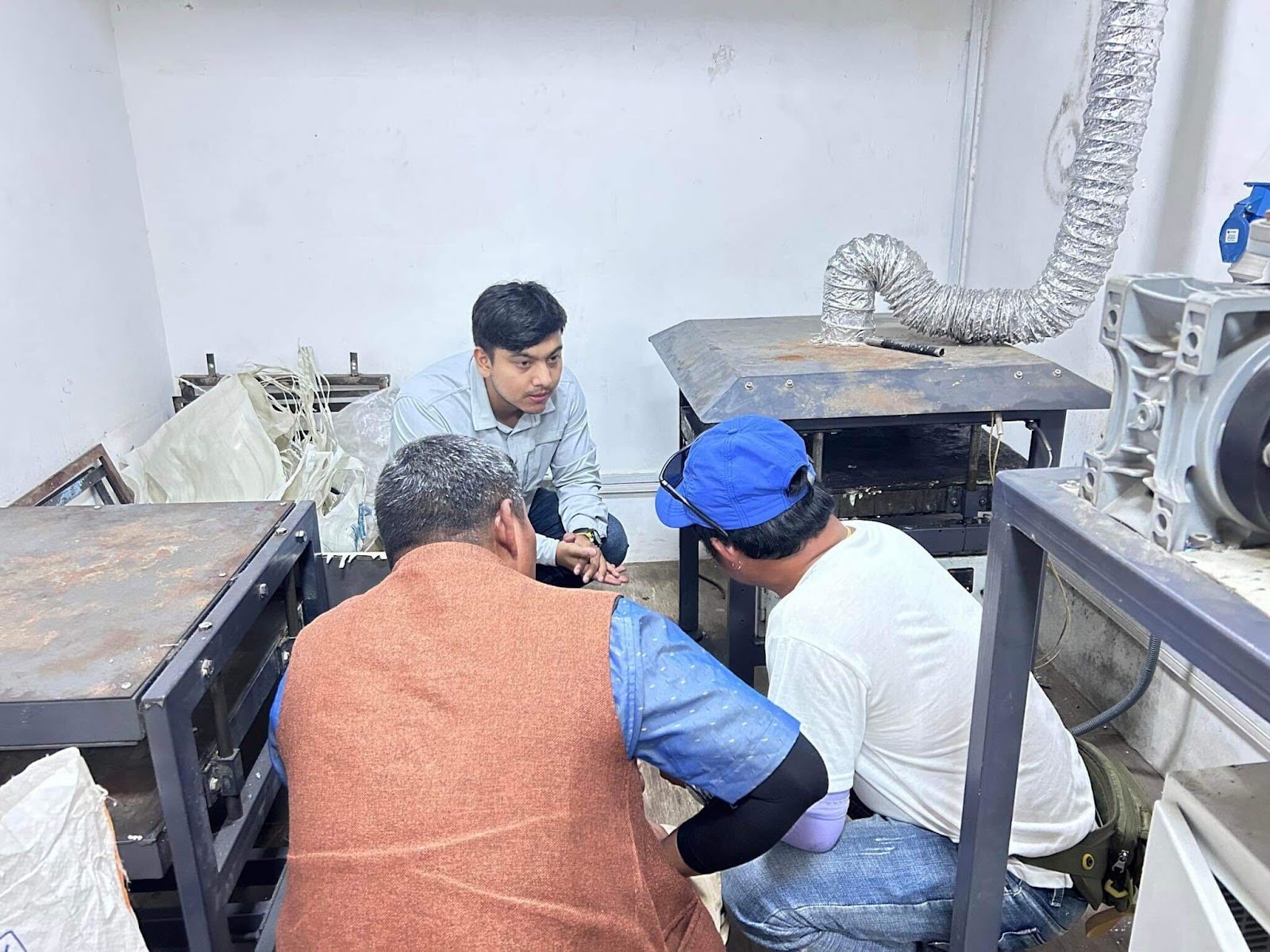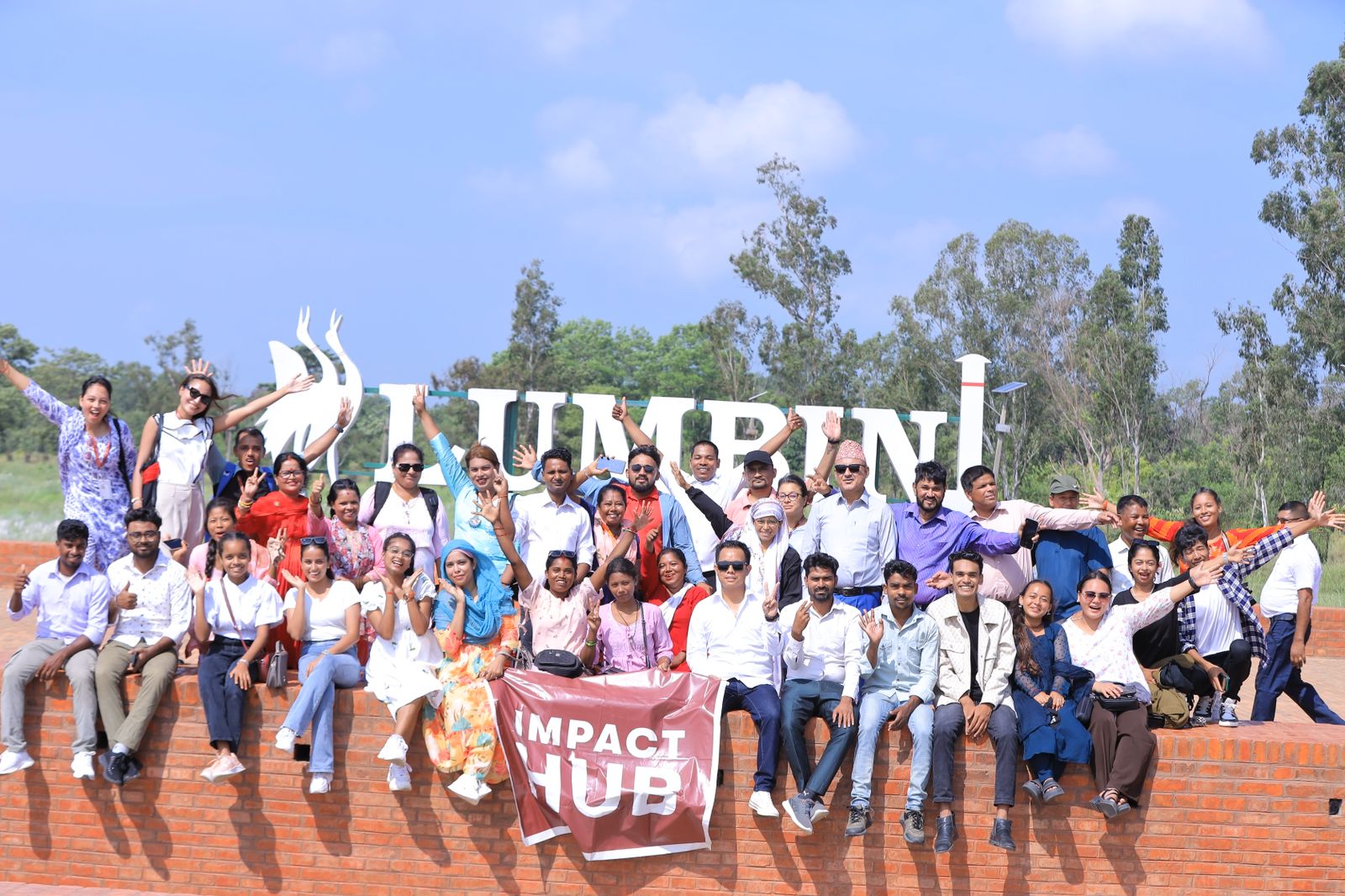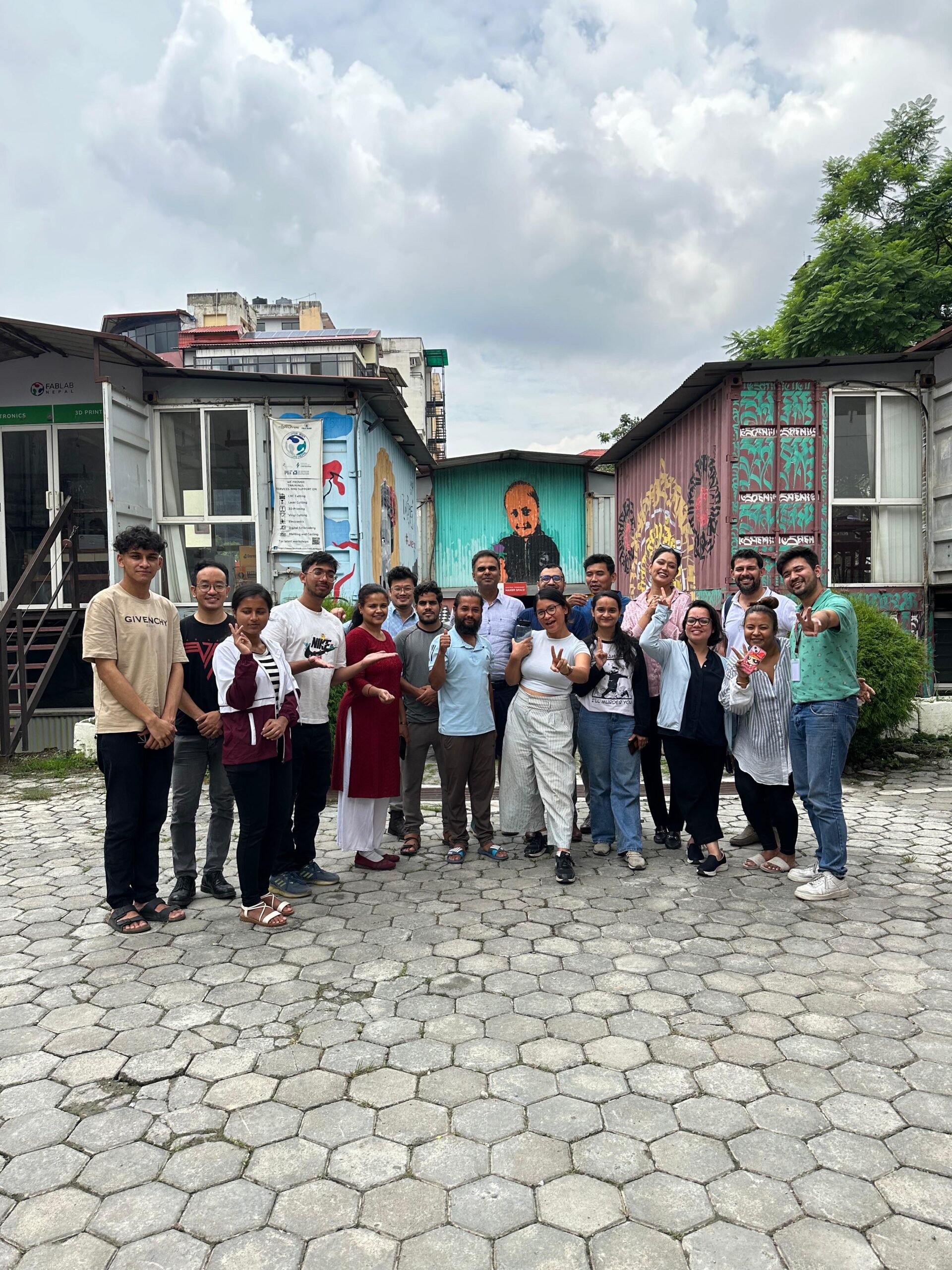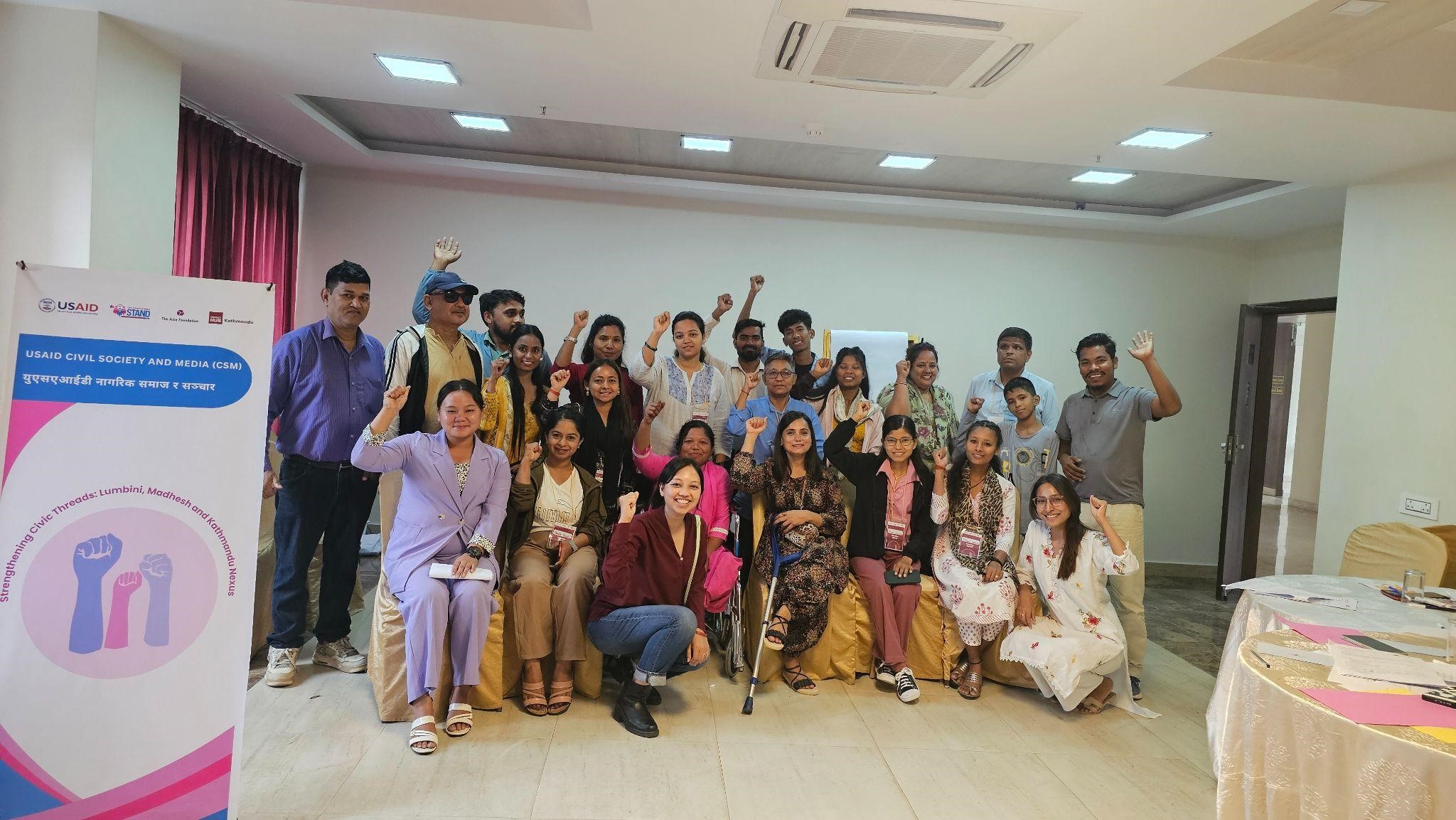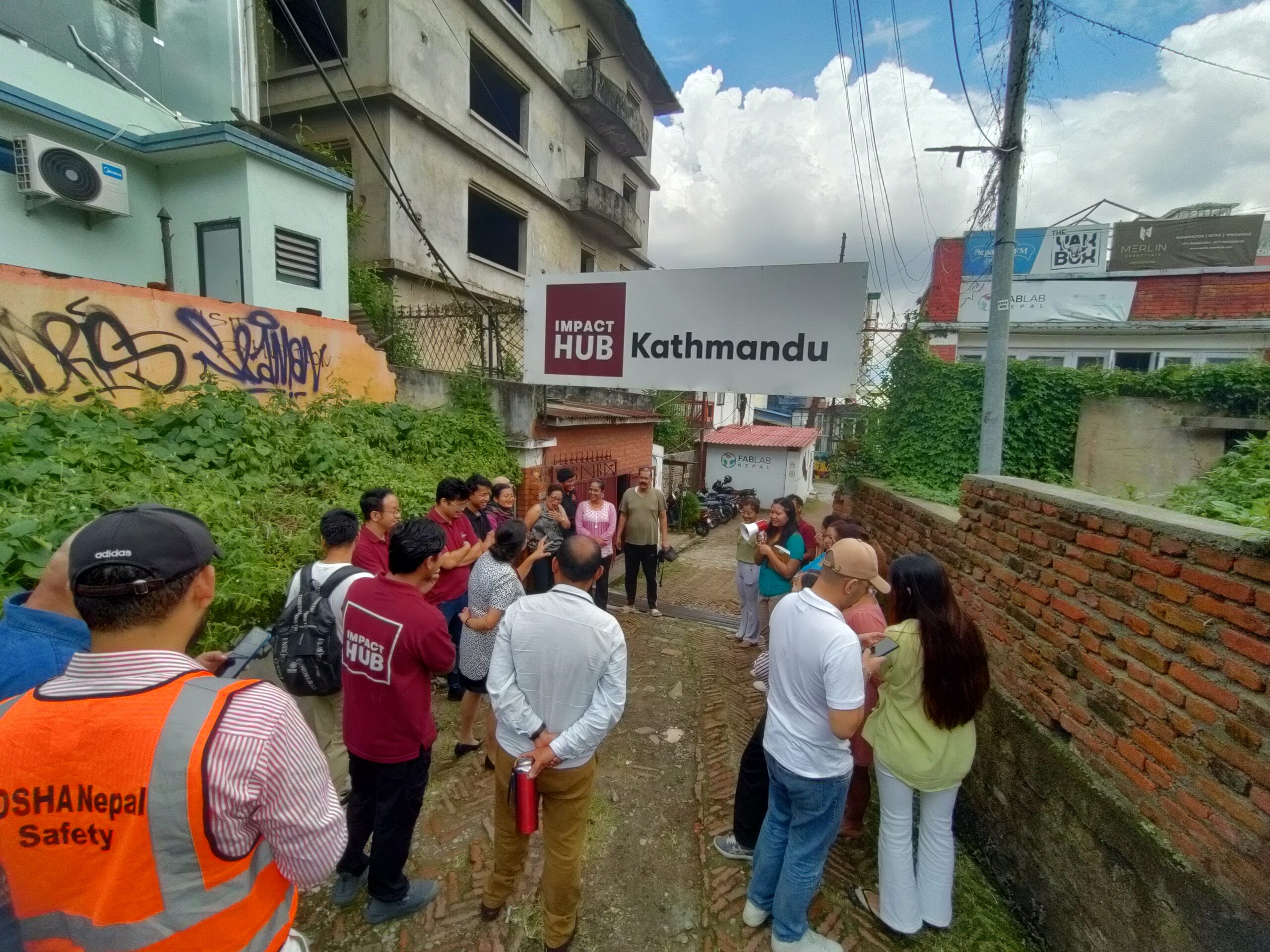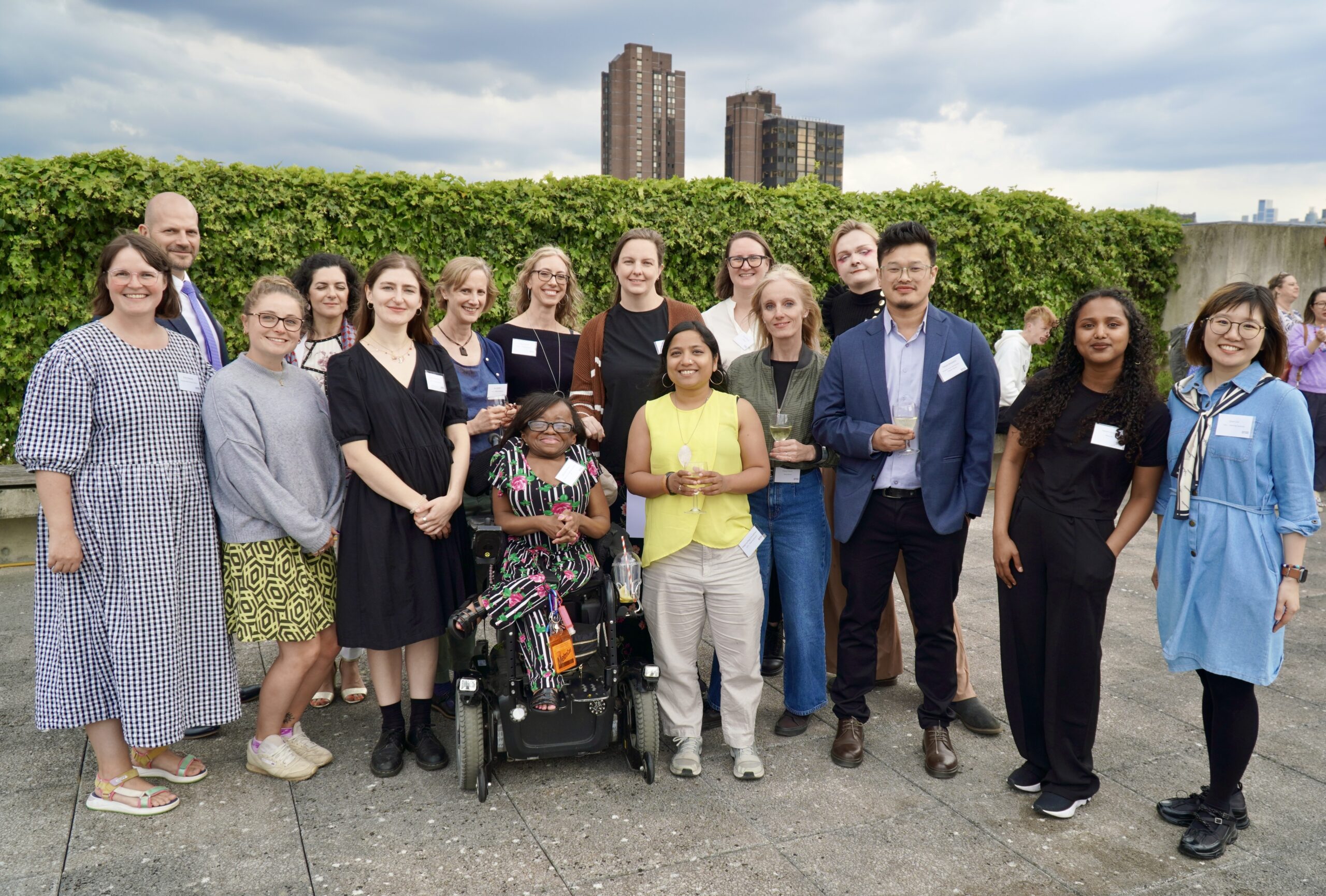The Internet of Things (IoT) is a name for the aggregate collection of network-enabled devices, excluding traditional computers like laptops and servers (Kelton, 2022). In an epochal blend of expertise and innovation in today’s world and the increasing need of Training of Trainers for Internet of Things, marked the dawn of a new era of proficiency within the rapidly evolving IoT landscape. Melina Tuladhar, Assistant Technical Officer for the FabLab team, led a dedicated 5-day internal Training of Trainers (TOT). Organised by the Impact Hub Kathmandu at FabLab Nepal, this training session aimed to empower internal teams with transformative knowledge in the realm of the Internet of Things (IoT).
The Internet of Things (IoT) is at the forefront of technological advancement. Equipping individuals with the knowledge of IoT ensures they are prepared to navigate and contribute to a world where interconnected devices play a pivotal role in shaping daily life and industry landscapes. 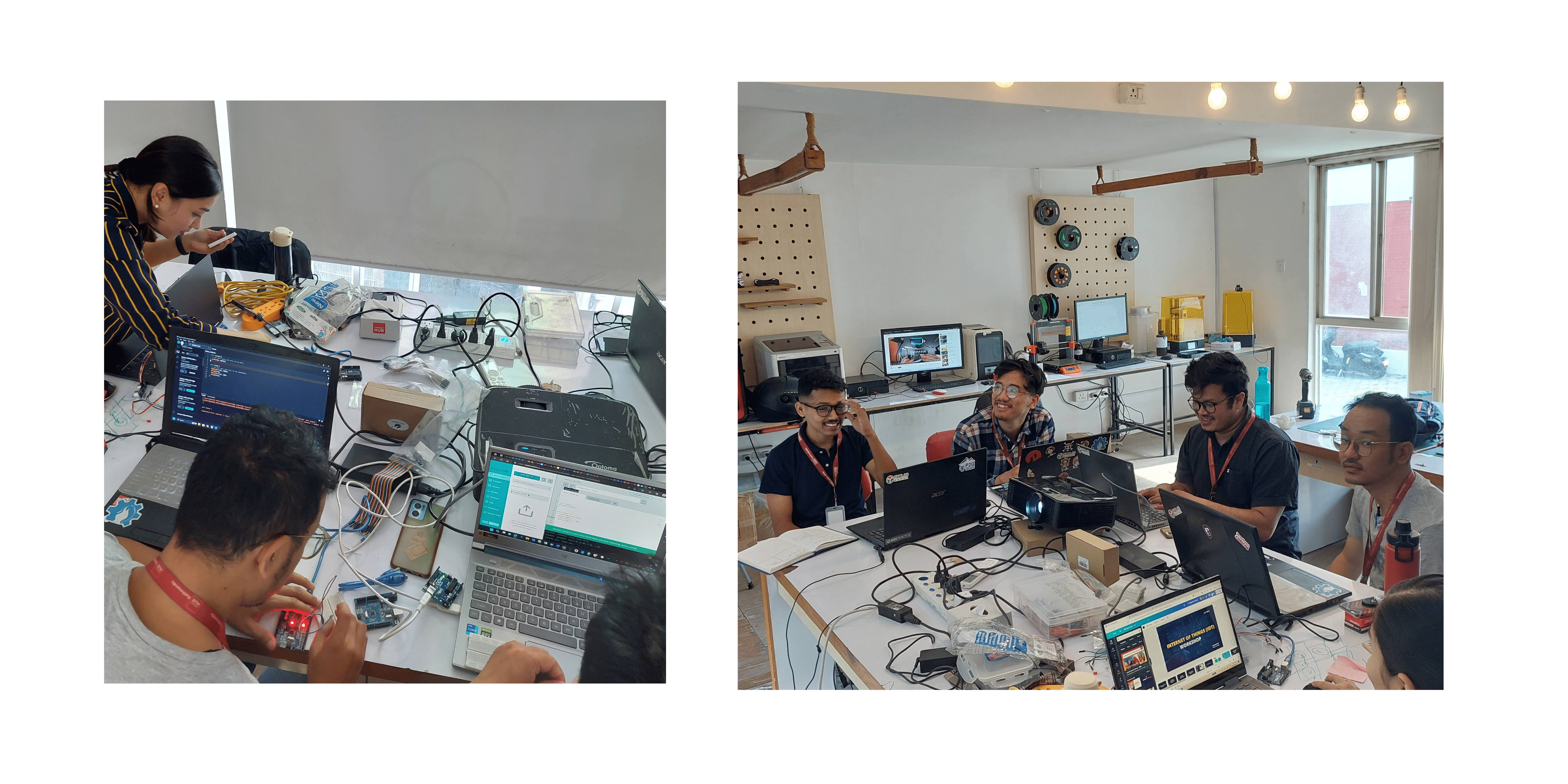 The training commenced with a vibrant exploration of the fundamentals of IoT. Participants delved into the evolution of IoT, grasping its core components like sensors, actuators, and the intricate web of communication protocols that make IoT devices interconnected. Insights were discussed on the real-world applications across industries, healthcare applications, agriculture, environmental monitoring, smart cities and infrastructure.
The training commenced with a vibrant exploration of the fundamentals of IoT. Participants delved into the evolution of IoT, grasping its core components like sensors, actuators, and the intricate web of communication protocols that make IoT devices interconnected. Insights were discussed on the real-world applications across industries, healthcare applications, agriculture, environmental monitoring, smart cities and infrastructure.
The second day transitioned seamlessly into the architecture that supports IoT ecosystems. Arduino, the versatile microcontroller platform, took centre stage. Participants delved into programming Arduino boards, learning to control LEDs (Light Emitting Diode) with a simple sketch, and ventured into the virtual world of TinkerCAD. This online platform enabled them to simulate Arduino circuits, providing a risk-free environment for experimentation and creativity. This laid the groundwork for more intricate projects in the days to come.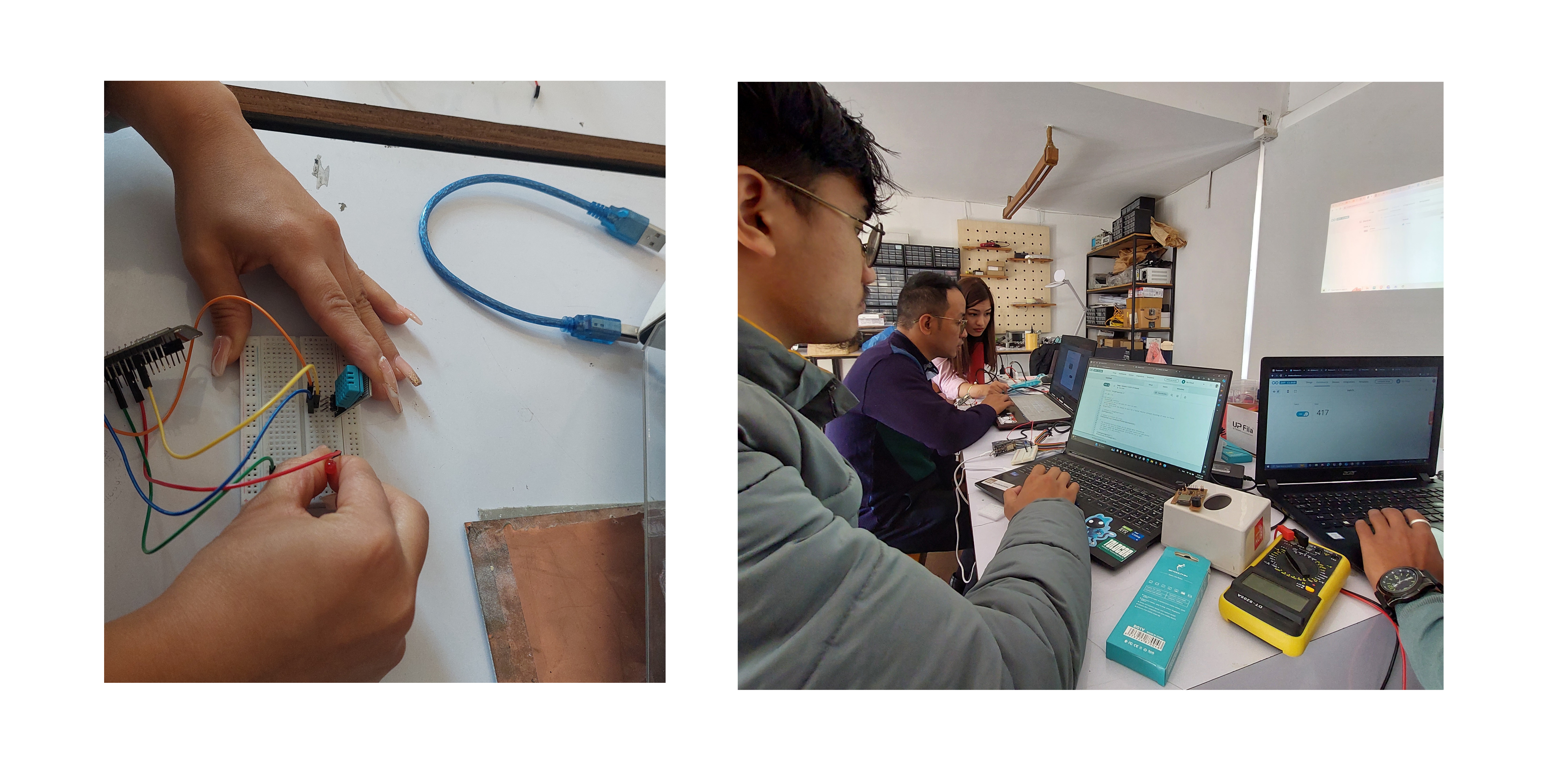 Understanding the characteristics of electronic circuit connections became paramount. The participants engaged in practical exercises, ensuring they could translate their ideas from the drawing board to a functional circuit. A brief session on resistor colour codes also equipped them with the knowledge to decipher resistor values, a skill essential for precise circuit design.
Understanding the characteristics of electronic circuit connections became paramount. The participants engaged in practical exercises, ensuring they could translate their ideas from the drawing board to a functional circuit. A brief session on resistor colour codes also equipped them with the knowledge to decipher resistor values, a skill essential for precise circuit design.
Day three was an immersion into the world of IoT devices. Participants ventured beyond Arduino to work with ESP8266, a powerful WiFi-enabled microcontroller. Guided by an expert, they not only controlled LEDs but also integrated temperature sensors, PIR (motion sensors), servo motors, and relays ( electronic switches) into their projects. Witnessing real-time data from these sensors provided a tangible understanding of IoT’s transformative potential. Utilizing Arduino IoT Cloud Dashboard, they not only controlled LEDs and temperature sensors but visualized real-time data in an intuitive dashboard interface. This practical experience bridged the gap between physical and virtual worlds, enhancing their understanding of IoT applications.
With newfound skills, participants explored practical applications across industries. They harnessed the power of ESP8266 to showcase temperature, and humidity data over the internet. The workshop not only involved coding but also delved into the mechanics of soldering as participants customized their sensor nodes, adding a hands-on dimension to the learning process.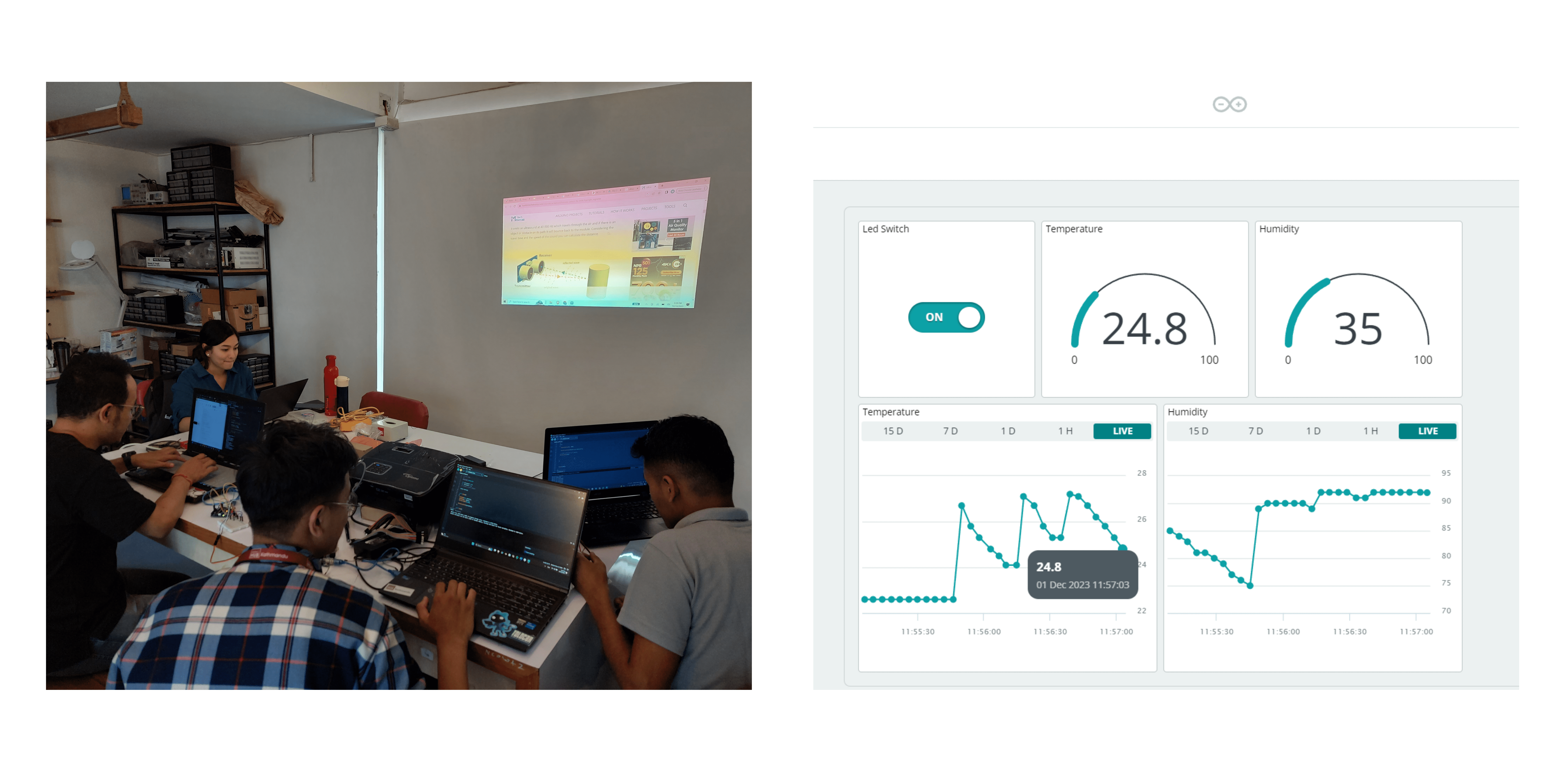 The internal IoT training was not just about understanding; it was learning about doing and that’s our motto here at FabLab Nepal. By immersing our teams in hands-on projects involving Arduino, ESP8266, Tinkercad simulations, IoT Cloud Dashboards, LED control, PIR, ultrasonic, temperature sensors, and even soldering, we have elevated our understanding of IoT from theory to practice. As we move forward, armed with this practical knowledge, Impact Hub Kathmandu is not just adapting to the IoT wave but riding it with confidence, innovation, and a commitment to staying at the forefront of technological advancements.
The internal IoT training was not just about understanding; it was learning about doing and that’s our motto here at FabLab Nepal. By immersing our teams in hands-on projects involving Arduino, ESP8266, Tinkercad simulations, IoT Cloud Dashboards, LED control, PIR, ultrasonic, temperature sensors, and even soldering, we have elevated our understanding of IoT from theory to practice. As we move forward, armed with this practical knowledge, Impact Hub Kathmandu is not just adapting to the IoT wave but riding it with confidence, innovation, and a commitment to staying at the forefront of technological advancements.

